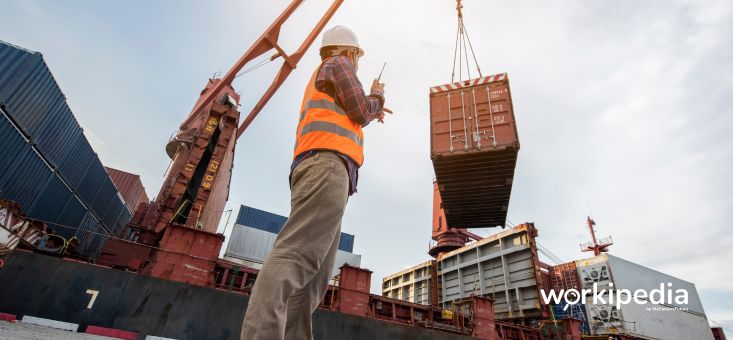2024 started on a pretty bright note for Singapore’s maritime sector, with Minister for Transport Chee Hong Tat announcing at a Singapore Maritime Foundation New Year Conversations event that 2023 had marked a record year in annual vessel arrival tonnage.
According to Minister Chee, who is also the Second Minister for Finance: “This reflected growth in all segments of our port ecosystem, including container ships, dry bulk carriers, liquid bulk and chemical tankers, ferries and specialised vessels, amidst a global trade slowdown.”
He added that Singapore has also made good progress in the supply of alternative fuels, and the electrification of harbour craft to support maritime decarbonisation and transformation.
Dr Li Haobin, academic director for the Master of Science (Maritime Technology and Management) programme in NUS shared with Workipedia by MyCareersFuture: “The information released by the Minister of Transport is a good prompt for many Singaporeans. In recent years, as we have closely followed the movements of capital and hot money which focused on some emerging technology industries, we should not forget that the maritime industry has been a pillar of Singapore’s economy for over half a century.”
“Even in recent years, from the COVID-19 pandemic to the slowdown in trade, in a turbulent economic environment, the maritime industry went against the trend and made continuous contributions to Singapore’s economic development.”
Dr Li believes Singaporean workers should give some serious thoughts on how they can ride with this vibrant industry to grow their lifelong career.
“The maritime industry promises not only secure, stable and exciting job for themselves and their families but also help Singapore grasp advanced engineering technology and management experiences, with the aim to be passed down through many generations, maintaining the status that our forefathers have built for us as a global maritime hub,” he added.
The reasons for Singapore’s maritime industry doing well so far
Serene Chan, Temasek Polytechnic’s senior lecturer for their Diploma in International Trade and Logistics, shared with Workipedia by MyCareersFuture some possible reasons why our maritime industry is worth jumping aboard:
1. Singapore’s strategic geographic position
As we know, Singapore is strategically well-positioned as a transportation hub for both air and sea. This connectivity is important when it comes to supply chain flexibility, especially amidst rising global geopolitical tensions.
Many multinational companies are also exploring a China+One strategy that will grow the flow of goods into Southeast Asia.
2. Singapore’s investments in infrastructure and technology
Singapore’s infrastructure plays a big part. Recent investments in both air and seaport infrastructure, such as Tuas Port, as well as automation and digitalisation in different parts of our maritime and logistics ecosystem, have enabled us to innovate existing processes.
This contributes significantly to productivity improvements, increasing our efficiency and capacity, and thus making Singapore an attractive port for vessels to call at.
3. Our focus on sustainability and innovation
The goals set for sustainable maritime and aviation in the Green Plan reflect our commitment towards achieving net-zero emissions.
Singapore has also invested significantly in developing new, greener technologies in the maritime industry.
Our decarbonisation blueprint lays out comprehensive strategies for the maritime sector to reach zero emissions by 2050.
The Port Authority of Singapore (PSA), meanwhile, is progressively preparing for a multi-fuel future, working with partners to establish a supply chain for zero-carbon fuels, especially green ammonia, hydrogen and methanol. This attracts businesses seeking to align their climate goals.
What it means for those working in the maritime industry and mid-career switchers looking to join
Serene shared: “Covid-19 turned the spotlight onto supply chain, logistics and distribution.
“People started to have a greater awareness of the strategic importance of our industry.”
“We have seen companies with the ability to orchestrate their supply chains that are adaptive and flexible, and this can bring about competitive advantage.”
“For those looking to switch into maritime and logistics, there are many opportunities available on multiple fronts, such as in innovation, digital solutions, sustainability etc.”
“There is job stability and growth in this sector given the government’s support in talent and skills development, such as career conversion programs, mid-career pathway programs, and skills development through continuing education and training (CET) courses.”
For those interested in industry-recognised training to move into new jobs or sectors such as the maritime industry, Workforce Singapore (WSG) also provides Career Conversion Programmes (CCPs) that help mid-careerists in Singapore to undergo skills conversions necessary to make career changes.
There are also Mid-Career Pathways Programmes for mature mid-career individuals aged 40 and above who are looking for a switch in careers to take up full-time attachments to ease their way into career switches.
In addition, Singapore is not just a logistics hub and is also a trade finance and legal hub.
With Singapore’s Green Plan, we can also expect environmental, social, and corporate governance (ESG) roles in logistics and supply chain to continue to grow, with new challenges coming with tracking and reporting of emissions.
Looking for a new role? Explore over 100,000 jobs available on MyCareersFuture now!
More jobs and initiatives to grow Singapore’s local maritime talent pool
Minister Chee also shared that in November 2023, the Maritime and Port Authority of Singapore (MPA) launched Sea the Difference, a campaign that celebrates opportunities and highlights the diversity of jobs in Maritime Singapore.
The campaign aims to inspire more Singaporeans to explore new career and professional development opportunities in the rapidly transforming maritime industry.
In 2023, a total of 60 MaritimeONE Scholarships and seven Tripartite Maritime Scholarships were awarded to Singaporeans, across a range of maritime and non-maritime degrees offered by local and overseas universities, and students from Singapore Polytechnic.
57 more local seafarers have also benefited from the Sail Milestone Achievement Programme (SailMAP) in 2023, from 38 in 2022. Launched in June 2022, SailMAP aims to encourage local seafarers to pursue a long-term career in seafaring and achieve the highest level of competency.
Serene added: “There are growth roles in data analytics, data science and application solutions – not just in the traditional supply chain roles, but also in maritime finance, data security and ESG.”
“We can also expect roles in supply chain quality and trade compliance to evolve as digitalisation and ESG places greater responsibilities on companies to ensure adherence to the regulatory policies set.”
Dr Li concluded: “These changes require maritime professionals to have a comprehensive and diverse understanding of new technologies and concepts across disciplines in the current maritime industry.
“With the right opportunity, they should be able to skilfully use digital technology, combined with their rich industry management experience, to propose practical and effective action plans.
“Those who master both technology and management as multidisciplinary talents will form the new pillar for Singapore’s maritime industry!”














